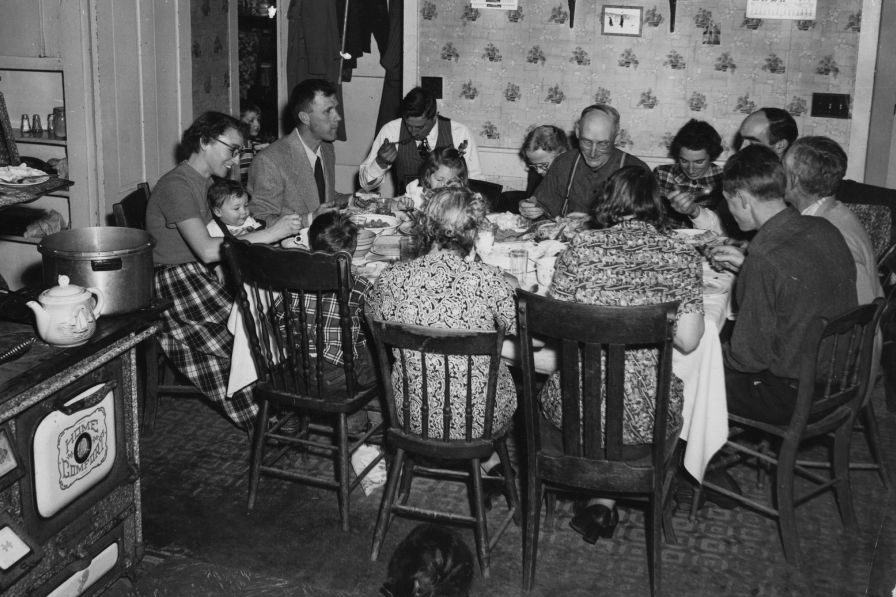Alexandria, Virginia
Close your eyes. Picture an elementary school orchestra on a school bus. All instruments are plastic recorders. Now picture the school bus hurtling into a warehouse filled with barn owls. Open your eyes. Welcome to my dinner table.
The priest assured us he wanted to experience family life at its fullest. No need for a special meal, he said (we will pretend that we eat duck every week). No need to clean (fat chance). Only a bachelor could think that freshly swept floors and expert cooking could detract from an authentic family meal in a house full of women. Aside from grace I do not think I have completed a sentence at the dinner table since 2017. There are too many riddles and recess incidents to discuss.
You may be the head of household both biblically and in the eyes of the IRS, but your transition to Hollywood personal assistant begins the moment you sit. “Daphne has a house that she goes to every Fourth of July, and she says I can come.” Despite Daphne’s ascension to best-friend status, your third grader does not know her surname. She does her best to make up for this oversight: “She really likes frogs.” You are making a mental note to check the directory when you are confronted by the first grader.
“Dad, the woman was murdered in a circle house. It was the maid because she was sweeping corners. Who killed the lady in the circle hou…no, let me start over.” But before she can start over, the third-grade barn owl asks why the character in her library book has eighteen dads and to stop from making a monkeypox joke, you turn to the teenager. “How was…” “Fine.” And it occurs to you that her stories are also devoid of surnames and that this may be born of intention rather than ignorance, and you pine for the days when she would interrupt dinner to tell you about the homicide in the circle house. This maudlin descent is quickly arrested by cries of protest from the other end of the table, where the toddler has stuck partially chewed vegetables onto the plate of her neighbor, who is still trying to recall the cook’s alibi.
International Noise Awareness Day is the type of holiday that only bureaucrats could invent. We missed the 2024 celebration because of the newborn but were able to get caught up to speed thanks to the CDC. Our public health agencies fund more than gain of function research that may or may not be responsible for millions of Covid deaths. They also spend taxpayer dollars on websites with cutting edge medical research such as, “Loud Noise Can Cause Hearing Loss.”
The NIH operates a website called Noisy Planet. There you will learn that experts advise you to “move away from the noise.” And the gravest source of noise is evidently restaurants. J.D. Vance has taken flak for his childless cat lady comments, but you can’t help noticing the real estate devoted to children in restaurants and in-person gatherings on Noisy Planet’s website. It is almost as if the NIH is less concerned about children’s hearing than it is about the adult right to avoid barn owl-recorder collisions. Human interaction is a threat as far as our public health commissars are concerned, one that can be alleviated by redirecting Junior and his riddles to the screen and his headphones. The sole purpose of this website appears to be cracking down on noise emission while ensuring that Dr. Dre remains a billionaire.
Our public health agencies note that hearing loss is the third most prevalent “chronic condition” in our aging society. Hyperacusis — also known as noise sensitivity — was once the purview of rock musicians and communists, but now estimates put the figure as high as 15 percent of all adults. My back-of-the-napkin math says there aren’t that many commies in the US. The crank in me yells that the increase in hyperacusis may have something to do with our refusal to accept aging; the other crank in me whispers that blaring noise direct to your earhole may have something to do with it. Thankfully, there are professional public health soothsayers to reassure both my inner cranks: the World Health Organization says kids can plug in those headphones for 40 hours per week, so long as it doesn’t exceed 80 decibels. Content consumption is a full-time job.
Headphones are nice, for they can be controlled. Not so children, which is why our public health experts warn against having them. Scientists gravely intone that an infant’s cry may approach 120 decibels, just shy of an airplane at take-off. But what if the cure to hyperacusis is not the avoidance of sound, but the embrace of the cacophony? Those 120-decibel-shrieks eventually give way to riddles and jokes and gossip and all the other female sounds you learned to tune out years ago.
Our celibate male friend said it was the best meal he’d had in years.
This article was originally published in The Spectator’s November 2024 World edition.


























Leave a Reply